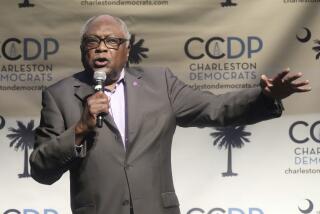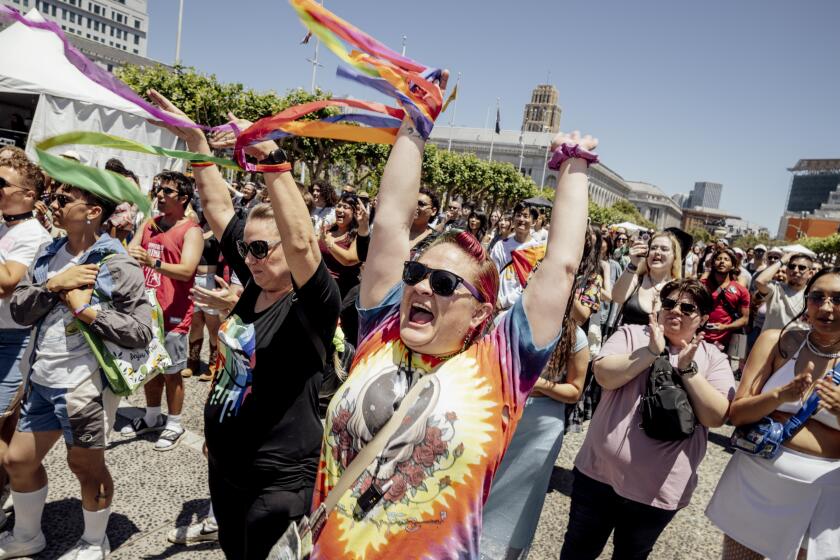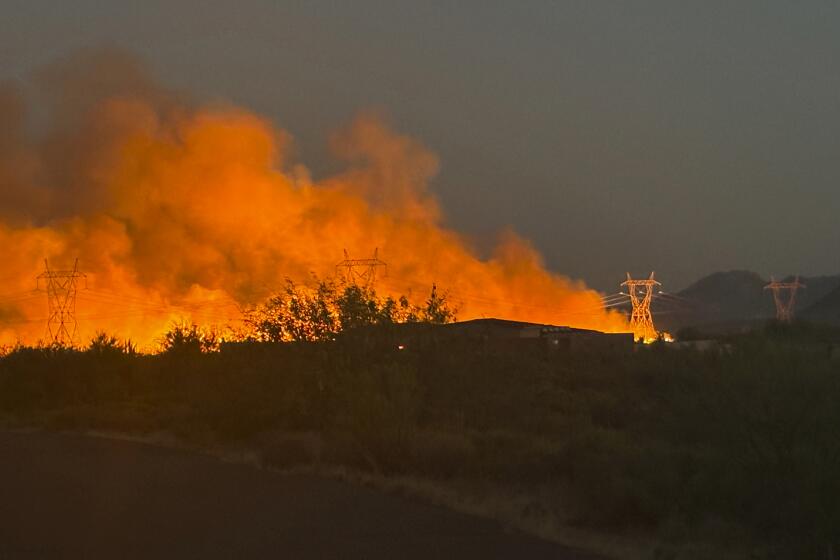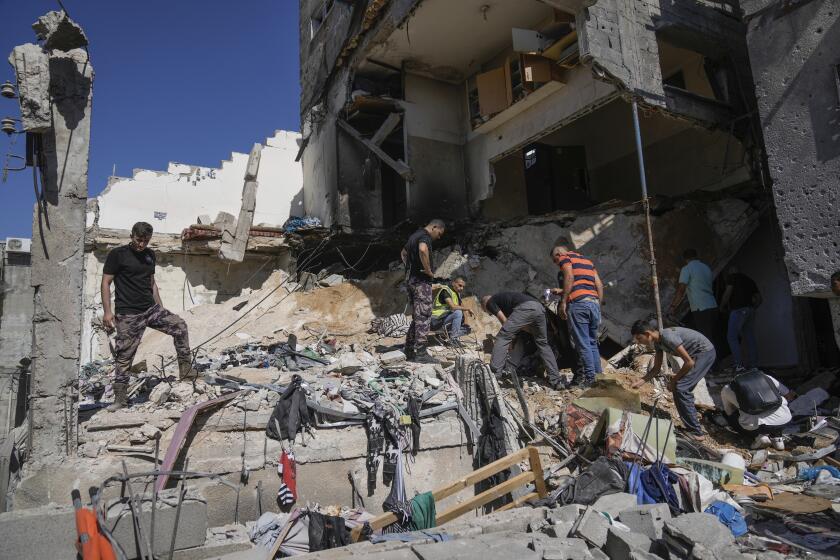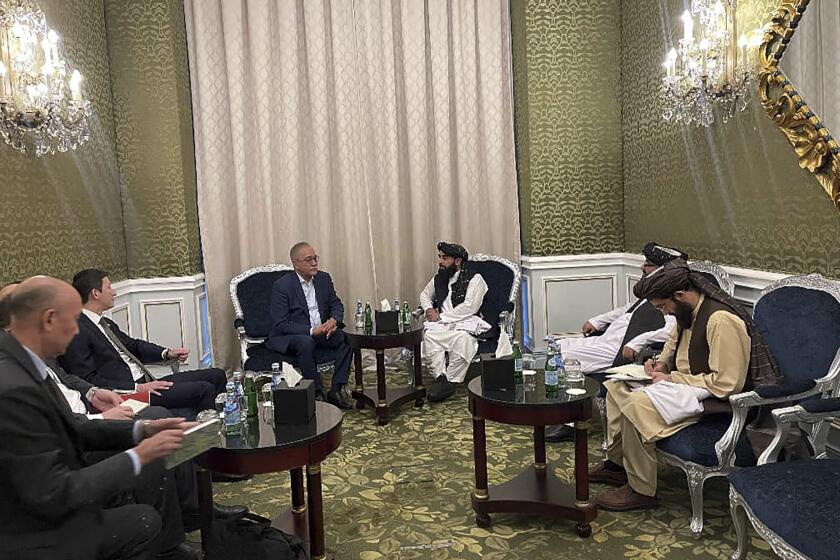South Africa struggles with rising crime
House robberies: up 27% for the year ending in March. Business robberies: up 41%. Sex crimes: up 10.1%. Carjackings: up 5%.
“The crimes you fear most are on the rise,” was how one South African newspaper put it.
No set of numbers is more politically sensitive here than the annual crime statistics, which were due for release before the April parliamentary elections, but were delayed until last week.
Police Commissioner Bheki Cele, a close ally of President Jacob Zuma, has the difficult task of turning around the nation’s surging crime rate, which affects South Africans in poor townships and informal settlements more than those in wealthy suburbs.
With one of the highest homicide rates in the world, South Africa has been struggling for years to reduce the violence. Next year’s FIFA World Cup soccer tournament has increased the pressure for action, amid fears that a major crime could taint the event.
So desperate is the African National Congress government to cut crime that it has been willing to water down post-apartheid-era laws that made it illegal for police to shoot to kill when pursuing fleeing suspects.
The apartheid-era police force was feared and distrusted, and now surveys indicate eroding confidence in the contemporary force, due in large part to corruption and the frequent reluctance of police to act on crime reports or visit crime scenes. Wealthy suburbs are policed by “24-hour rapid response” private security squads and farmers volunteer for rural patrols.
Since his appointment nearly two months ago, Cele, an ANC member who served as a provincial chief of security and transport, has toured the country, meeting provincial commissioners and addressing the 1,116 station commanders. He has taken to dropping in at police stations unannounced, speaking to people lining up for service.
“I was pretty angry,” he says in an interview with The Times, describing one recent surprise visit. “I found some guys standing around the gate, chatting. And it wasn’t teatime.”
Cele, with a gravelly voice and swaggering air, dresses like a Hollywood gangster, often wearing a sharp suit and Panama hat.
Tabloid columnists gossip salaciously about his string of girlfriends. And cartoonists depict him being chased down by the Four Horsemen of the Apocalypse -- the violent crime categories that are on the rise.
Questions have been raised about whether reported decreases in some crime categories are real, with suggestions that police station chiefs, under enormous pressure to show they are on top of crime, may be falsifying statistics.
Moreover, “some communities are still worshiping thugs, where the thugs are more popular than the police,” Cele said.
To combat crime, legislation increasing the power of police to act with deadly force will soon go to parliament.
That’s a major shift: The iconic figure of the black struggle against apartheid was Hector Pieterson, a schoolboy gunned down by police during the Soweto uprising in 1976.
In the interview in his Pretoria office, Cele, dressed in a police uniform and hunched in his chair, speaks so rapidly that he barely draws breath. His eyes are piercing, his manner energetic.
The entryway is a grubby arcade packed with greasy cafes and takeout food shops. But his waiting room is filled with elegant red-and-silver brocade chairs and two huge gilt-edged mirrors, conveying an air of pomp and importance.
“What is terrible is the brutality of the crime in this country,” said Cele, once a member of MK, the ANC underground military movement during apartheid.
Cele grew up in poverty and his parents couldn’t afford to send him to university. But by working and studying, he managed to gain a teaching diploma and taught in rural black schools.
He was drawn to the ANC because of the lack of educational opportunities for blacks under apartheid, and in the 1980s he fled into exile in Angola and joined the MK, also known as Umkhonto we Sizwe.
He returned secretly to South Africa but was captured in 1987 and sent to Robben Island for three years. Cele and Zuma came from the same province and have similar backgrounds fighting apartheid.
Cele says he feels that he was treated brutally by the system. And he says the lingering effects of apartheid are to blame for the violence the country is seeing now.
“Consciously or unconsciously, it’s still driving us. There were people who were brutalized and they believed that they’re entitled, and sometimes they do [things] the wrong way,” he said.
When Cele took office, he called for greater police power to use deadly force in pursuit of criminals, many of whom are heavily armed.
“Now about the shoot-to-kill,” Cele said, cutting to the most controversial question before the 30 minutes of interview time were up. “I never said we must shoot to kill.”
But he argues that police shouldn’t have to think twice about using deadly force when dealing with armed criminals. He maintains that any hesitation or confusion over what is allowed is dangerous.
Critics say the police already have adequate powers: The law says they can fire their weapons when their lives or the lives of civilians are in immediate danger.
There are signs that even without the proposed legislation, police are trigger-happy and poorly trained, critics say.
South Africa’s police force faces civil claims totaling more than $770 million for shootings, alleged assaults and other actions involving civilians, according to its annual report.
Before he can substantially reduce the crime rate, analysts contend, Cele will have to fix a broken police force.
Last year, 538 police officers were convicted of serious crimes, including homicide, rape, assault and corruption, according to government figures.
Recent headlines offer a snapshot: On Sept. 7, police fatally shot an unarmed 15-year-old boy while breaking up a teen party.
On Sept. 15, the Star newspaper reported that three months after a man was killed for his cellphone, police still hadn’t interviewed the two witnesses, collected the autopsy report or sent bullet fragments and blood samples for testing.
Cele rapidly fires off his ideas about how to correct the problems. Police aren’t fit enough, he says; they should go to the gym. Police suicides need to be addressed. Police colleges need improvement. Police bosses should mentor stations in high crime areas.
“We must be active. And I’ll be there. I’ll be going to the roadblocks. I’ll be going to stations unannounced.”
--
More to Read
Start your day right
Sign up for Essential California for news, features and recommendations from the L.A. Times and beyond in your inbox six days a week.
You may occasionally receive promotional content from the Los Angeles Times.


